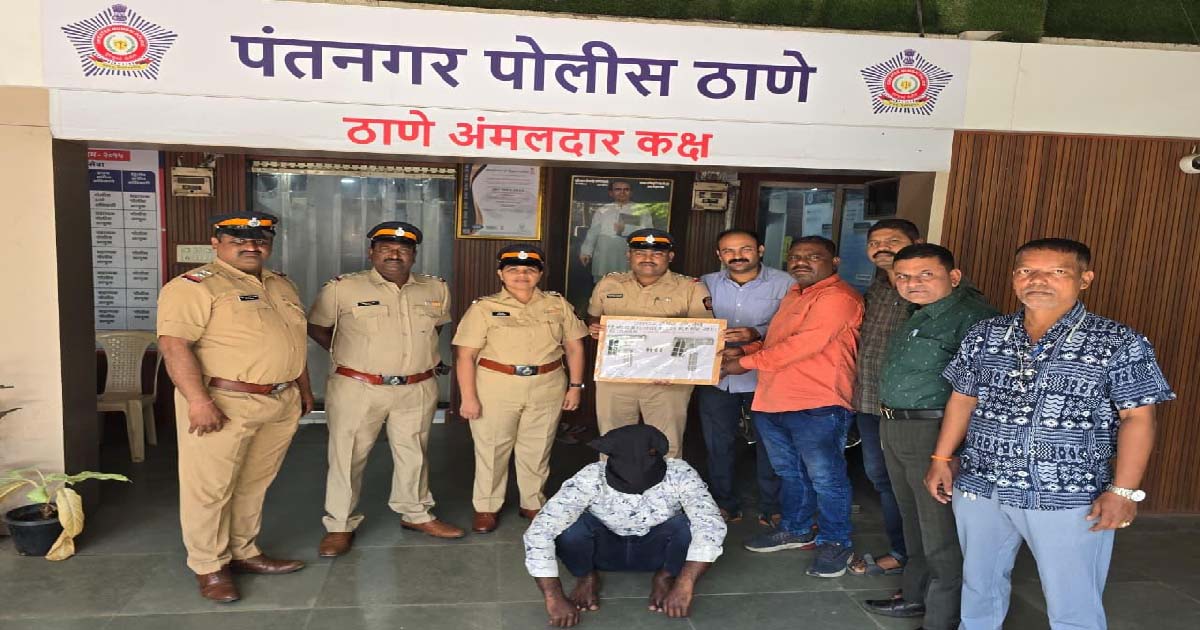Maharashtra
Shiv Sena ‘rebel’ who changed his mind in Guwahati, gets ACB notice now
Pressure further mounted on the Shiv Sena-UBT after an MLA – who had “rebelled” in June last year and then changed his mind in Guwahati – has been slapped with an Anti-Corruption Bureau (ACB) notice, party leaders said here on Tuesday.
Balapur (Akola) MLA Nitin Deshmukh has been served the ACB notice, making him the third MLA in the past two months to get such notices for allegations pertaining to holding disproportionate assets.
The Sena-UBT has again cried foul at the hounding of its legislators by various probe agencies by the government.
In recent months, two of its MLAs – Vaibhav Naik from Kudal (Sindhudurg) and Rajan Salvi from Rajapur (Ratnagiri) – had received ACB notices in October and December 2022, respectively.
After going to Gujarat and Guwahati with the rebel camp led by Eknath Shinde – now the Chief Minister – Deshmukh had mysteriously resurfaced in Mumbai and rejoined the faction led by Uddhav Thackeray.
The party had wholeheartedly rejoiced, showered praises on him and he was felicitated by both Thackeray and son Aditya Thackeray later.
Unfazed after getting the ACB notice, Deshmukh said that “attempts are being made to implicate me”, and he would report to the probe agency on January 17 in Amravati to record his statement.
He said that around a fortnight back, Shinde’s Balasahebanchi Shiv Sena (BSS) MP Bhavna Gawli had filed a case against him after which the ACB Amravati notice was received.
Deshmukh pointed out that the ACB notice is vague, with no mention of the complainant’s name, the nature of the complaint and he would not be scared even if central agencies send him a notice as he has no illegal properties.
The Sena MLA said that after going to the ACB Amravati office, he would hold a media conference and expose the conspiracy against him.
At the height of the rebellion drama in June, Deshmukh had alleged that he was “kidnapped”, whisked off to Surat and then to Guwahati where attempts were made to subject him to some “medical procedure” but he managed to escape.
Dismissing his accusations, the Shinde camp had then countered by saying that nobody was taken there forcibly and they had arranged a private jet for him to return.
Maharashtra
Two youths drown in Mumbai’s Mahim creek

Mumbai: Two people jumped into the Mahim creek in Mumbai, due to which they drowned. The search for them is on. Today at around 12:20 pm, Irshad Asif Sheikh, a transgender, aged 22, residing at Lal Mati, Nargis Dutt Nagar, Bandra (West), Mumbai, and Qalander Altaf Khan, aged 20, residing at Lal Mati, Nargis Dutt Nagar, Bandra (West), were standing between a bridge in Bandra. During this, they had an argument and one jumped into the creek while the other also jumped into the water to save him.
During the argument, Irshad jumped into the water and Qalander Khan jumped after him to save him. However, both drowned in the water.
The search operation is on, so far no trace of both has been found. Teams are searching for both.
Maharashtra
Sameer Wankhede targeted in The Baddest of Bollywood; Delhi High Court orders removal of objectionable content from controversial series in defamation case

Mumbai: The Mumbai-Delhi High Court has strongly criticized Red Chillies Entertainment Shah Rukh Khan, Gauri Khan and others in the defamation case against NCB Zonal Director IRS officer Sameer Wankhede and said that artistic freedom does not mean mocking a person. After this, the High Court has ordered that the controversial footage related to Sameer Wankhede be removed from the controversial Netflix series The Bads of Bollywood. Sameer Wankhede had filed a petition in the High Court and pleaded that his character has been killed in The Bads of Bollywood and this series has been made to target him. The purpose is to humiliate and mock Sameer Wankhede. After watching some parts of this series, the High Court has ordered the removal of the controversial parts from the film.
Sameer Wankhede’s lawyer had told the court that the character portrayed in the film is a comparison to Sameer Wankhede and that this series has been created with the intention of tarnishing Wankhede’s image. The Bads of Bollywood is malicious, therefore, the above-mentioned controversial scenes and objectionable dialogues should be deleted from the series, on which the court has issued an order to delete the controversial and objectionable content and content. Earlier, while hearing Sameer Wankhede’s petition, the court had sent notices to Shah Rukh Khan’s Red Chillies, Netflix, Meta, and social media platforms and directed them to file a response. To this, Red Chillies had called the film and series a drama and made it clear that it had nothing to do with the facts. However, despite this, the Delhi High Court inquired whether a film drama does not mean that someone’s character is killed and said this, it reprimanded Shah Rukh Khan and the film company. Sameer Wankhede tried to prove through his argument that the character portrayed in the film resembles Sameer Wankhede and that this character has been portrayed in a negative way to target him and in this, an attempt has been made to make fun of Sameer Wankhede through this character, which has humiliated Wankhede, which the court has accepted and issued a directive to delete the objectionable and controversial content. This is a big success for Sameer Wankhede, while Shah Rukh Khan has suffered a huge setback.
Maharashtra
Mumbai arms supplier arrested from Ghatkopar depot

Mumbai: Police has claimed to have arrested an arms supplier from Ghatkopar Bus Depot who had come here to supply arms to Mumbai. The Mumbai Police Ghatkopar Anti-Gang Squad received information about this. The police laid a trap and took the accused into custody and recovered two country-made pistols and four live cartridges from his possession. During the investigation, the police asked him his name and he revealed his name as Ajay Kailash, a resident of Ujjain. The police have registered a case in this matter and started the investigation. Pantnagar Police has started the investigation in this matter to find out from where the accused had brought the arms to supply arms. This action was taken by DCP Rakesh Ola on the instructions of Mumbai Police Commissioner Deven Bharti.
-

 Crime3 years ago
Crime3 years agoClass 10 student jumps to death in Jaipur
-

 Maharashtra1 year ago
Maharashtra1 year agoMumbai Local Train Update: Central Railway’s New Timetable Comes Into Effect; Check Full List Of Revised Timings & Stations
-

 Maharashtra1 year ago
Maharashtra1 year agoMumbai To Go Toll-Free Tonight! Maharashtra Govt Announces Complete Toll Waiver For Light Motor Vehicles At All 5 Entry Points Of City
-

 Maharashtra1 year ago
Maharashtra1 year agoFalse photo of Imtiaz Jaleel’s rally, exposing the fooling conspiracy
-

 National News1 year ago
National News1 year agoMinistry of Railways rolls out Special Drive 4.0 with focus on digitisation, cleanliness, inclusiveness and grievance redressal
-

 Maharashtra12 months ago
Maharashtra12 months agoMaharashtra Elections 2024: Mumbai Metro & BEST Services Extended Till Midnight On Voting Day
-

 National News1 year ago
National News1 year agoJ&K: 4 Jawans Killed, 28 Injured After Bus Carrying BSF Personnel For Poll Duty Falls Into Gorge In Budgam; Terrifying Visuals Surface
-

 Crime1 year ago
Crime1 year agoBaba Siddique Murder: Mumbai Police Unable To Get Lawrence Bishnoi Custody Due To Home Ministry Order, Says Report












